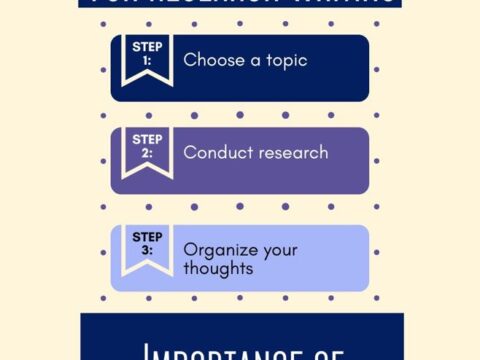Plan Ahead: Set Yourself Up for a Career in Electrical and Computer Engineering
Regardless of where you are in your life or at what stage, if you have a dream that you want to achieve, you can start working toward that immediately. If your dreams include working as an electrical and computer engineer, then you can start at any stage of your education process to set yourself up for success.
This starts with taking useful courses whilst still in high school, so that you have to right credentials to get into the university you like, then it’s getting used to online learning, just in case you want to visit an online university and then understanding the future of what you need beyond a BA undergraduate degree like a masters. So, without further ado, it’s time to jump into this topic.
Pick the Right Subjects and Do Your Research
One of the biggest ways to set yourself up for a hopeful career in electrical and computer engineering is by picking the right subjects while you’re still in high school. This often includes IT classes, science, advanced mathematics and economics or technology, whichever your school offers. This will give you the right foundations on which to build toward a degree in this field.
If you have passed the stage of school and you’re simply interested in this degree, there are many things you can do as well. You can spend some time looking at complementary videos on YouTube, for example, that explain the core elements of computers, mathematics and coding, just so that you can put one foot in front of the other as you continue to learn.
Furthermore, you need to set yourself up for success by doing your research and finding the education that suits your needs best. This will be further outlined below.
Have Online Education Systems Replaced Traditional Lectures?
Online education has certainly become a lot bigger and more significant in the market over the past years. This is something that you should keep in mind when looking for where you want to study, as you can find an electrical and computer engineering online degree that gives you access to excellent information, whilst staying at home and being able to engage from all over the world. Digital learning is its own niche and those who have never done it before may not be aware of all the different benefits and challenges, so keep reading to learn more.
Benefits of Online Learning
One of the biggest benefits of online learning is the fact that you can do it from anywhere in the world. This means that you are not forced to stay in one area or classroom for the three or four years that it takes you to get your degree, allowing for a lot more mobility.
Another benefit is the fact that you can access education from all over the world. This means that if you’re in a remote part of a country, you do not need to leave all you know behind in search of excellent education; you can now easily find it online. This creates a saving as well, as you do not need to relocate in pursuit of education, which was once often the case. Also, you don’t have to spend hours commuting to and from an educational establishment, which is a plus.
Furthermore, you’re able to work at the same time, if you can handle it. By visiting an online course, you can slot the hours you need to study when you have the time. You’re not forced to be present between certain hours, giving you more flexibility in your day to do what you need, such as having a job.
Challenges of Online Learning
As with anything good, there are some drawbacks or challenges that you must consider. One of the biggest is self-efficacy and motivation. You have to have your head screwed on right so that you take the responsibility to learn and do as you need to. You have to manage your time well and constantly motivate yourself because no one else will. In online classrooms, you might have some interaction with fellow classmates and lecturers, however, it’s all through a screen and no one is there in person to push you to finish your essays or assignments. This means that the onus falls on you to complete everything.
The Future of Electrical and Computer Engineering
As with most courses, you start with a BA undergraduate degree. You then move on to your master’s, which is where you can pick between many different specialities. This will allow you to find the niche that you think suits you best. Perhaps you are more inclined toward management, in which case, you could learn more about engineering management as opposed to hands-on engineering if you think that you would do well as a leader.
You can always get in touch with the student and subject advisors of the establishment so that they can give you a better idea of the courses you can take and how you can build your curriculum in a way that suits you best.
Well, as you can see from the above, the world of education is changing. With the introduction of technology, things are moving quickly toward online learning and this development comes with certain benefits and challenges. It’s up to you to navigate them with the tools you have at your disposal so that you can earn that degree you’ve worked so hard toward.
Here’s the sign-up link if the image above doesn’t work:
https://forms.aweber.com/form/07/1910174607.htm
“The content presented in this blog are the result of creative imagination and not intended for use, reproduction, or incorporation into any artificial intelligence training or machine learning systems without prior written consent from the author.”
Jacqui Murray has been teaching K-18 technology for 30 years. She is the editor/author of over a hundred tech ed resources including a K-12 technology curriculum, K-8 keyboard curriculum, K-8 Digital Citizenship curriculum. She is an adjunct professor in tech ed, Master Teacher, freelance journalist on tech ed topics, and author of the tech thrillers, To Hunt a Sub and Twenty-four Days. You can find her resources at Structured Learning.








































That is a very good overview. I started out in physics but transition into electrical engineering as well as computer science, well the last was really robotics.
All of those fascinate me, Thomas, just couldn’t wrap my brain around them.